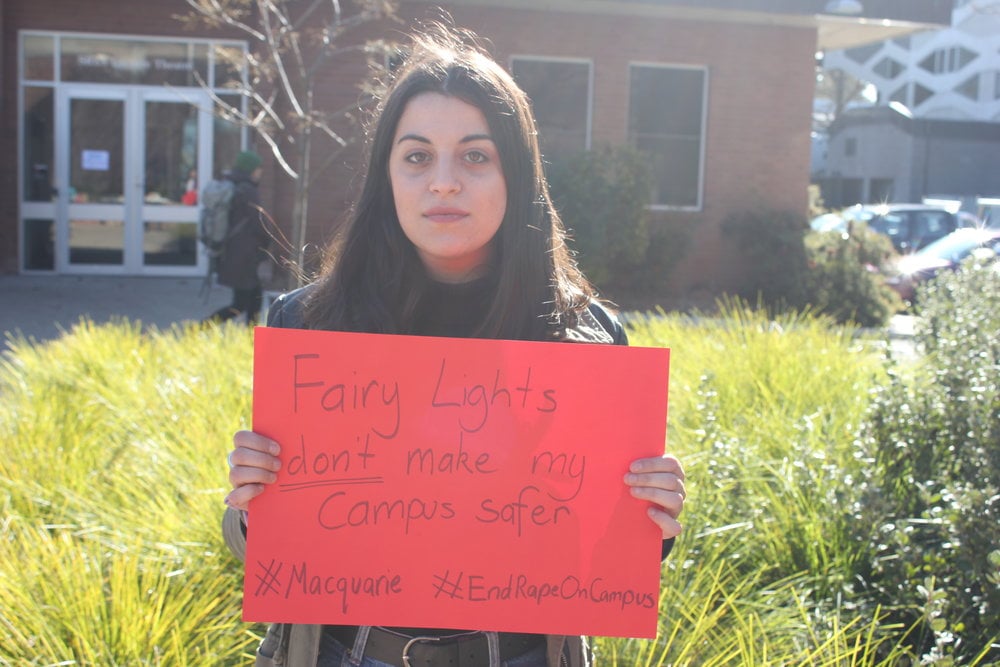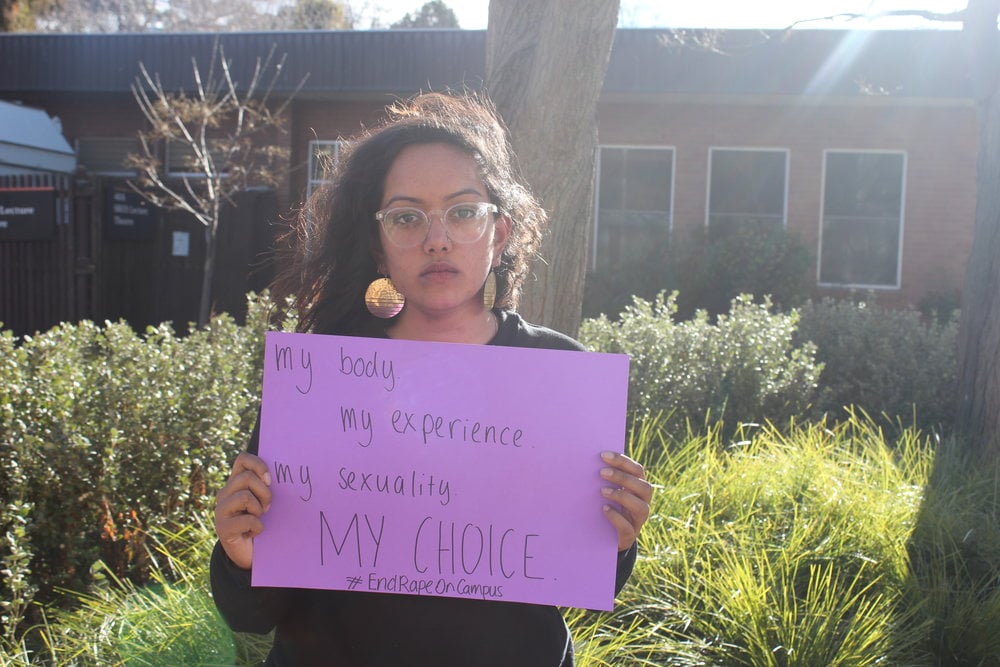Content warning: This piece details experiences of sexual assault and rape and may be distressing for some readers.
For too long, when people hear of campus sexual assault they think of frat parties, mattress protests and other distinctly American imagery.
But sexual assault and rape at Australian universities is happening at shocking levels and the Australian public is just wising up to the issue.
I should know.
In 2007 I was an honours student at the University of Sydney. While travelling home on the day of my honors presentation I was violently assaulted. I was grabbed, bashed, strangled, and had a box-cutter held against my throat.
The man told me “I will kill you” before he proceeded to try to rape me.
I fought back. While feeble, my resistance was just enough to undermine his sense of control over the situation and he fled.
I wasn’t raped. But I was indecently sexually assaulted, bashed, choked, bruised and deeply traumatised by the attack.
In the weeks that followed the media became intensely interested in the case. I had Today Tonight and A Current Affair at my front door along with morning shows, nightly news and all the tabloids.
At Sydney University other students began to recognise me as I had waived my right to anonymity. And the flow on effect was that other sexual assault survivors began to disclose their own stories of rape to me. And so, even though my own assault had been a stranger-danger assault, I became acutely aware of the rapes that were occurring on my own campus.



































































































